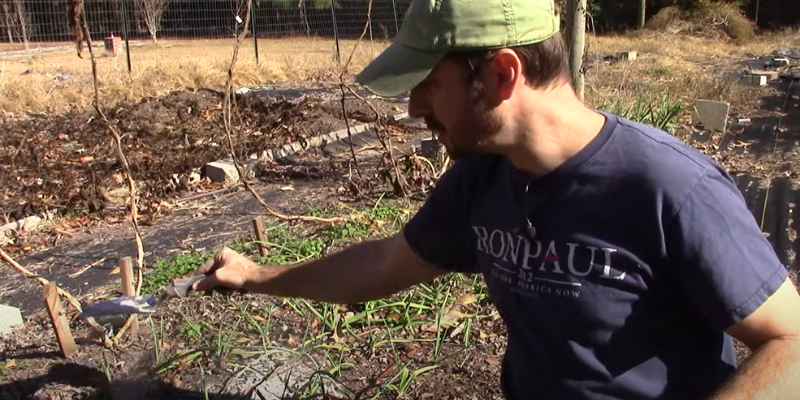Wood ash is good for soil amendment and can be used as a natural source of potassium and trace elements. It also has a liming effect, which helps remedy excessively acidic soils.
Wood ash can be added to compost or applied directly to bare ground. Additionally, it can be used as a traction enhancer on icy surfaces, a natural pest repellant, or to hide stains on concrete. Ash wood itself is commonly used to make handles for tools, flooring, hockey sticks, and other wooden items.
It has also been used historically for skis, coaches, and farm implements. Wood ash is even known for its ability to absorb smells, making it a great substitute for baking soda.
Introduction To Wood Ash
Wood ash is a versatile substance with various benefits. It can enrich compost, repel pests, and improve traction on icy surfaces. However, be cautious as some plants like apple trees and blueberries are not fond of wood ash due to its alkaline nature.
The Basics Of Wood Ash
Wood ash is a valuable resource that can benefit your garden and household in various ways.
- Rich in essential nutrients like potassium and calcium
- Can help balance soil pH levels
- Acts as a natural pest repellent
Common Misconceptions
Despite its benefits, there are misconceptions about the use of wood ash that need to be addressed.
- Not suitable for acid-loving plants like blueberries and rhododendrons
- Should not be used in excess due to its alkaline nature
- Quality of ash varies based on the type of wood burned

Wood Ash In The Garden
Wood ash is a natural source of potassium and trace elements that can be beneficial for plants in the garden. However, it should be used carefully as some plants, such as apple and pear trees, do not like wood ash.
It can also have a liming effect on the soil, so a soil test is recommended before using it as a soil amendment.
Boosting Soil Health
Wood ash, a byproduct of fires, can be a valuable resource in the garden. Its alkaline nature can help neutralize acidic soils, improving soil health and plant growth.
Plants That Love And Hate Wood Ash
Certain plants thrive with wood ash, such as tomatoes, cucumbers, and lilacs, benefiting from the added potassium. However, plants like blueberries, raspberries, and rhododendrons dislike wood ash due to their preference for acidic soil conditions.
Beyond The Garden: Surprising Uses
Wood ash is good for more than just the garden. It can be used to naturally melt ice, enrich compost, repel pests, and even hide stains on concrete. Additionally, it has been traditionally used for making soap and as a soil amendment for various plants.
Cleaning Agent For Silverware
Wood ash is not just useful in the garden, it also has surprising applications beyond that. One such surprising use is as a cleaning agent for silverware. The alkaline nature of wood ash makes it an effective natural cleaner, particularly for silverware. The abrasive texture of the ash helps to remove tarnish and stains, leaving your silverware looking shiny and new.
To use wood ash as a cleaning agent for silverware, simply follow these steps:
- Gather a soft cloth or sponge and dampen it with water.
- Dip the cloth or sponge into the wood ash, making sure to coat it evenly.
- Gently rub the silverware with the ash-coated cloth or sponge, paying extra attention to areas with tarnish or stains.
- Rinse the silverware thoroughly with water to remove any remaining ash residue.
- Dry the silverware with a clean cloth to prevent water spots.
Using wood ash as a cleaning agent for silverware is not only effective but also environmentally friendly, as it avoids the use of harsh chemicals that can be harmful to both your health and the environment. So, next time you need to polish your silverware, consider reaching for a bit of wood ash instead!
Please note that this method is suitable for solid silver or silver-plated silverware. It is not recommended for silver jewelry with gemstones or other delicate materials, as the abrasive nature of the ash may cause damage.
A Natural De-icer
Another surprising use for wood ash is as a natural de-icer. During the winter months, when icy or snow-covered surfaces pose a risk of slips and falls, wood ash can be a useful tool in ensuring safety.
To use wood ash as a natural de-icer, follow these steps:
- Collect wood ash from your fireplace or wood-burning stove.
- Spread a thin layer of wood ash onto icy or snow-covered surfaces, such as walkways, driveways, or stairs.
- Allow the ash to interact with the ice or snow, which will help to melt it and provide better traction.
- Use a shovel or broom to remove any remaining ash once the ice has melted or the snow has cleared.
Wood ash is an effective natural de-icer due to its ability to absorb moisture and lower the freezing point of water. This makes it a cost-effective and eco-friendly alternative to commercial de-icing products, which often contain harmful chemicals that can be damaging to the environment and infrastructure.
Remember to use wood ash in moderation and avoid excessive application, as it can be harmful to plants and grass if used in large quantities. Additionally, always ensure that the wood ash you are using is from natural wood and does not contain any contaminants or additives.
Wood ash is truly a versatile resource, offering surprising uses beyond the garden. Whether it’s cleaning silverware or de-icing walkways, this natural byproduct has proven its worth in various applications. So, the next time you have wood ash on hand, consider giving these surprising uses a try!
Wood Ash For Pest Control
Wood ash can be a valuable resource for controlling pests in your garden. It contains properties that repel certain pests and can be used as a natural deterrent.
Repelling Slugs And Snails
Wood ash creates an abrasive barrier that repels slugs and snails, protecting your plants from these destructive pests.
Ant Deterrent
Wood ash can deter ants and prevent them from infesting your garden. Sprinkling ash around the garden can create a barrier that ants are reluctant to cross, keeping your plants safe from these pests.

Wood Ash In Composting
Wood ash is a valuable resource for composting as it provides essential nutrients like potassium and trace elements. It can also help balance the pH level of the soil and improve its structure. However, it should be used in moderation as some plants, such as blueberries and potatoes, may not tolerate high levels of wood ash.
Wood ash can be a great addition to your compost pile. It not only provides nutrients to the soil, but it also helps to balance the pH levels of the compost, making it an ideal ingredient for composting. In this section, we’ll explore how wood ash can enhance the health of your compost, balance its pH, and provide other benefits.
Enhancing compost health
Wood ash is a great source of nutrients for your compost. It contains potassium, calcium, and magnesium, which are essential for the growth of plants. These nutrients help to improve soil structure and make it more fertile. The addition of wood ash to your compost pile can help to speed up the decomposition process, resulting in a nutrient-rich compost that is ideal for gardening.
Balancing compost pH
One of the key benefits of wood ash in composting is its ability to balance the pH levels of the compost. The ideal pH level for compost is between 6 and 8. If the pH level is too acidic or too alkaline, the compost may not decompose properly, and the nutrients may not be available to plants. Wood ash helps to increase the pH level of acidic compost, making it more alkaline and therefore more conducive to plant growth.
To use wood ash in composting, simply sprinkle it on top of the compost pile, making sure to mix it in well. Be careful not to use too much wood ash, as it can raise the pH level too high and damage the compost.
In conclusion, wood ash is an excellent addition to your compost pile. It can enhance the health of your compost, balance its pH, and provide other benefits. If you’re looking to improve the quality of your compost, consider adding wood ash to your mix.
Health And Safety Precautions
Wood ash is beneficial for enriching compost, providing potassium, and repelling pests naturally. It can be used to balance soil pH and improve traction on icy surfaces, making it a versatile and eco-friendly resource for various applications.
Safe Handling And Storage
Always wear gloves and a mask when handling wood ash to protect your skin and lungs.
Store wood ash in a dry place away from moisture to prevent clumping and mold growth.
When Not To Use Wood Ash
Avoid using wood ash from treated or painted wood, as it may contain harmful chemicals.
Do not use wood ash on plants that prefer acidic soil, such as blueberries and rhododendrons.
Creative And Household Uses
Wood ash is a versatile substance with a range of creative and household uses. Apart from its benefits in the garden, wood ash can be utilized in various other ways. Let’s explore some of the innovative and practical applications of wood ash in everyday life.
Natural Odor Absorber
Wood ash can effectively absorb and neutralize odors, making it a natural and eco-friendly alternative to commercial deodorizers. You can place small bowls of wood ash in areas where odors are a concern, such as refrigerators, closets, or pet areas, to help eliminate unpleasant smells.
Homemade Soap From Lye
One of the traditional uses of wood ash is in the production of lye, an essential ingredient in soap making. By combining wood ash with water and filtering the solution, you can obtain lye, which can then be used to create homemade soap. This natural and chemical-free method allows you to make your own soap for personal use or gifting.
Getting The Most Out Of Wood Ash
Wood ash is a versatile and valuable resource that can be used in a variety of applications to benefit your garden and home. By following a few simple tips for collecting and storing ash, as well as maximizing its benefits in different areas, you can make the most of this natural byproduct.
Tips For Collecting And Storing Ash
When collecting wood ash, make sure it is completely cooled to avoid any risk of fire. Store the ash in a dry, covered container to prevent it from getting wet and losing its beneficial properties. It’s important to keep ash separate from other substances such as water, as it can turn into a caustic substance called lye when combined with moisture.
Maximizing The Benefits Of Wood Ash In Various Applications
Wood ash can be maximized in various ways to benefit your garden and household. Here are some key applications:
- Soil Amendment: Incorporate wood ash into your garden soil to raise its pH level and provide essential nutrients such as potassium and calcium for plant growth.
- Compost Addition: Mix wood ash into your compost pile to enhance its nutrient content and help balance the pH levels.
- Pest Repellent: Use wood ash to repel pests such as slugs and snails by creating a barrier around vulnerable plants.
- Ice Melter: Sprinkle wood ash on icy surfaces to improve traction and help melt the ice naturally.
- Odor Neutralizer: Utilize wood ash to absorb and neutralize odors, whether in the compost bin or on pet-related stains.
Frequently Asked Questions
Are Wood Ashes Good For Anything?
Wood ashes can be used for shining silverware, preventing slips on ice, repelling pests, and amending soil for gardening.
What Plants Don’t Like Wood Ash?
Plants that don’t like wood ash include apple, peach, and pear trees, sweet corn, peppers, eggplant, rhubarb, parsley, sweet potatoes, potatoes (can lead to potato scab), blueberries, raspberries, and most other berries, roses, azaleas, rhododendron, hydrangea, birch trees, red maples, and pin oaks.
It’s important to use ash from natural wood and to avoid using it on plants that prefer acidic soil.
What Can You Do With Ash From A Fire Pit?
Wood ash from a fire pit can be used to naturally melt ice, enrich compost, repel pests, hide stains, and neutralize skunk odors. It’s also a source of potassium and trace elements for soil. Just ensure it comes from natural wood and avoid using it on certain plants.
What Are The Uses Of Ash Wood?
Ash wood is commonly used for making handles, flooring, hockey sticks, and rackets. It has also been used in the past for skis, coaches, carts, and farm implements. Additionally, wood ash can be used as a natural additive for composting or directly applied to the soil for its potassium and trace element content, as well as its liming effect to remedy acidic soils.
Conclusion
Wood ash has various benefits for the garden and household use. It can be used as a soil amendment, natural pest repellent, traction enhancer, and even for hiding stains. Additionally, it serves as a source of potassium and trace elements for plants.
With its versatility, wood ash proves to be a valuable resource.


